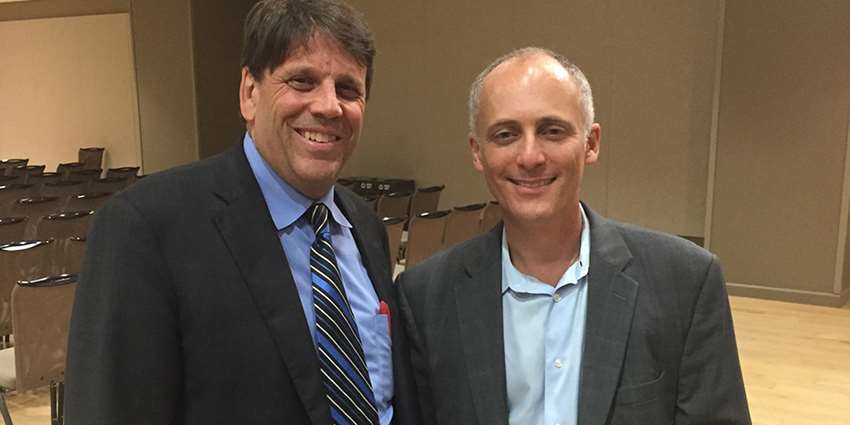Despite its geographical location in a desert by salty seas, Israel has used technology, policy and innovation to achieve water security and even abundance, according to Gabriel Eckstein, professor of law at the Texas A&M University School of Law.
Eckstein presented a seminar Sept. 15 at Texas A&M University, titled “Water Scarcity, Challenges, and Opportunities: Lessons from Israel.” The Texas Water Resources Institute, Consulate General of Israel in Houston, Texas A&M Water Management and Hydrological Science Program and Bush School Institute for Science, Technology and Public Policy sponsored the event.
Eckstein said that presenting on this topic was quite personal for him because he was born and raised in Israel, before his family moved to the U.S. when he was young. Growing up in Israel, he had the opportunity to witness water innovation first-hand, he said, and he is very proud of Israel’s water sector.
“My parents are both scientists; my dad is a hydrogeologist, and he was with the Israeli Geological Survey for many years before we moved to the U.S.,” Eckstein said. “And I remember as a kid going out in the field and watching him do well studies.”
A “water ethic” present in the Israeli culture, a shared attitude of conserving and valuing water, is a foundational factor in the country achieving water security, he said.
He detailed how “this tiny country,” roughly the size of New Jersey, has achieved water security despite it being 60 percent desert and the rest arid or marginally suitable for agriculture. Israel has used relatively energy-efficient desalination, water governance by an independent water authority, water pricing at full market price, efficient irrigation and other water management strategies, he said.
“Israel today produces 20 percent more water than it uses,” Eckstein said, adding that its multi-billion-dollar agriculture sector is thriving. “Israel is self-sufficient in fruits, vegetables, dairy and poultry.”
TWRI has made the entire presentation available on video.
For more information on Eckstein, visit his faculty page or follow him on Twitter.

